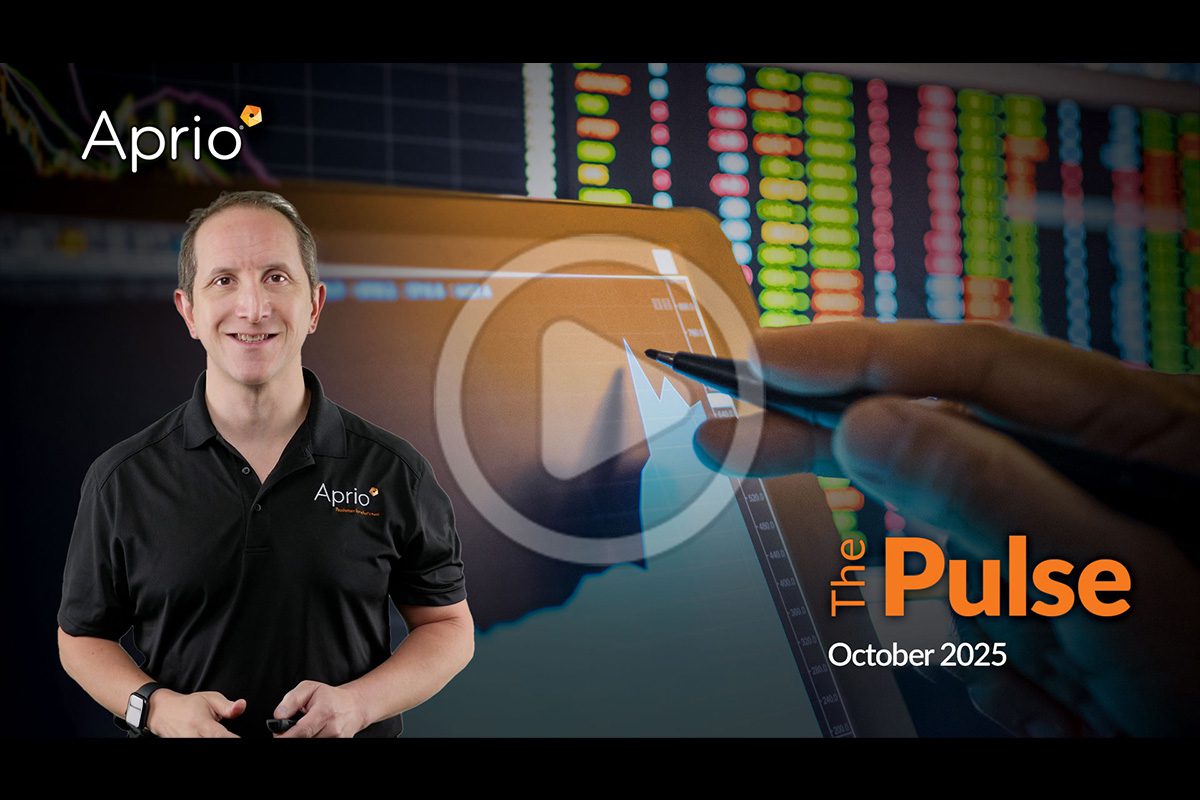
To Summarize: Global equities have been outperforming, driven by a weaker dollar and increased diversification. Credit spreads remain tight, signaling stability and comfort with economic risk. However, investors remain vigilant amid recent surprise bankruptcies. In response to a resilient economy, CEOs are ramping up capital spending as they place bets on future growth and productivity. Meanwhile, inflation is broadening, potentially pressuring margins and prompting businesses to sharpen their pricing discipline.
The big takeaway – CEOs are doubling down growth investments while keeping a close eye on inflation and unexpected bankruptcies.
In the Markets: Stocks and bonds had a mixed start to Q4 as soft job data raised economic concerns. Emerging markets and the Nasdaq are up, but most other markets have declined. International markets continue to outperform the U.S., driven by a weakening dollar, which is down about 10% for the year. Investors now expect two more rate cuts this year and one per quarter through early 2026, supporting riskier assets and small business borrowing.
CEOs Focused on Growth & Productivity: CEOs are ramping up capital spending, signaling optimism for future growth and productivity. While Q3 and Q4 earnings estimates appear cautious, we could experience an increase in stock prices through the end of the year. Credit markets remain stable with tight spreads reflecting resilience despite recent surprise bankruptcies from First Brands and Tricolor Automotive, prompting selective hedging.
Balancing Wages Amid Mounting Inflation: Consumers are spending as rising business productivity drives wage growth, boosting purchasing power across income levels. However, younger workers face higher unemployment as experience is prioritized in the job market. Inflation is gradually climbing, broadening across the goods and services sectors, forcing businesses to manage margins and pricing more tightly. As companies weigh how much cost can be passed on without hurting demand, supply chain planning has become increasingly crucial for next year.
Top Headlines: We’re reading about how student loan delinquencies are on the rise, First Brands’ creditor says $2.3 billion simply vanished, the office capital markets show more signs of thawing, and the U.S. housing market finally starts to listen to homebuyers.
Related resources:
- Consumer: Student loan delinquencies are on the rise. Here’s why.
- Manufacturing: First Brands’ creditor says $2.3 billion simply vanished
- Commercial Real Estate: More signs of thawing in the office capital markets
- Residential Real Estate: The U.S. housing market is finally starting to listen to homebuyers
Disclosures
Investment advisory services are offered by Aprio Wealth Management, LLC, a Securities and Exchange Commission Registered Investment Advisor. Opinions expressed are as of the publication date and subject to change without notice. Aprio Wealth Management, LLC shall not be responsible for any trading decisions, damages, or other losses resulting from, or related to, the information, data, analyses or opinions contained herein or their use, which do not constitute investment advice, are provided as of the date written, are provided solely for informational purposes and therefore are not an offer to buy or sell a security. This commentary is for informational purposes only and has not been tailored to suit any individual. References to specific securities or investment options should not be considered an offer to purchase or sell that specific investment.
This commentary contains certain forward-looking statements. Forward-looking statements involve known and unknown risks, uncertainties and other factors which may cause the actual results to differ materially and/or substantially from any future results, performance or achievements expressed or implied by those projected in the forward-looking statements for any reason. No graph, chart, or formula in this presentation can be used in and of itself to determine which securities to buy or sell, when to buy or sell securities, whether to invest using this investment strategy, or whether to engage Aprio Wealth Management, LLC’s investment advisory services.
Investments in securities are subject to investment risk, including possible loss of principal. Prices of securities may fluctuate from time to time and may even become valueless. Any securities mentioned in this commentary are not FDIC-insured, may lose value, and are not guaranteed by a bank or other financial institution. Before making any investment decision, investors should read and consider all the relevant investment product information. Investors should seriously consider if the investment is suitable for them by referencing their own financial position, investment objectives, and risk profile before making any investment decision. There can be no assurance that any financial strategy will be successful.
Certain investor qualifications may apply. Definitions for Qualified Purchaser, Qualified Client and Accredited Investor can be found from multiple sources online or in the SEC’s glossary found here https://www.sec.gov/education/glossary/jargon-z#Q

